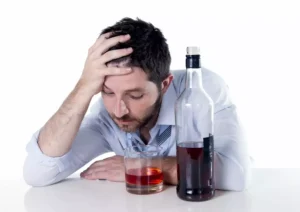
If you’re planning on heading out for a night that will involve some drinks, there are some things you can do to help you sleep afterward. Research shows that alcohol actually has a disruptive effect on your sleep the rest of the night and messes with sleep quality and quantity. Lindsay Modglin is a nurse and professional writer who regularly writes about complex medical topics, as well as travel and the great outdoors. She holds a professional certificate in scientific writing from Stanford University School of Medicine and has contributed to many major publications including Insider and Verywell. As a passionate advocate for science-based content, she loves writing captivating material that supports scientific research and education.
Snoring and Sleep Apnea
- The condition is linked to fatigue as well as serious cardiovascular conditions like heart attack and stroke.
- “The naturally occurring sugar in the juice might make you have to urinate more — sugar often pulls additional water to dilute it in the body,” she explains.
- Making a plan to focus on better sleep habits can help you feel your best and improve your overall health.
- Before reaching for that glass, hear from the experts how alcohol before bed might affect your sleep.
- But even light drinking close to bedtime has the potential to interfere with sleep.
In general, try to avoid drinking alcohol four hours before you plan on going to sleep. And though it may help in the short term, drinking alcohol before bed can actually lead to a night of horrible, restless sleep. Since alcohol affects everyone differently, it’s important to understand where your limit lies and how much alcohol you can drink before it starts to affect your sleep. If you’re looking for ways to improve your sleep, an easy place to start is by adopting healthy sleep hygiene habits such as keeping a consistent sleep schedule and creating a calming bedroom environment.
Water
A meta-analysis of these studies found that OSA was around 25% more common in heavier drinkers compared to non-drinkers or lighter drinkers. While this demonstrates a correlation, it does not necessarily prove that alcohol itself causes OSA. Research suggests that, as a depressant, alcohol does help you fall asleep faster, but those effects quickly wear away after just a few hours as your body tries to eliminate the alcohol from your system. Unsurprisingly, studies of people with insomnia have also found that heavy alcohol use exacerbates insomnia. People who wake up feeling unrefreshed may be more likely to rely on alcohol again to help them sleep the next night, leading to a counterproductive pattern of alcohol use. Alcohol increases levels of adenosine, a key component of the homeostatic drive.
- Insomnia is a common problem for many adults, but it is not uncommon to experience it in the short-term and long-term after quitting drinking.
- Knowing when to stop drinking water before bed is a similar balancing act.
- Alcohol potentially causes a shorter overall sleep time and disrupted sleep, which lead to next-day fatigue and sleepiness.
How does alcohol affect your sleep?
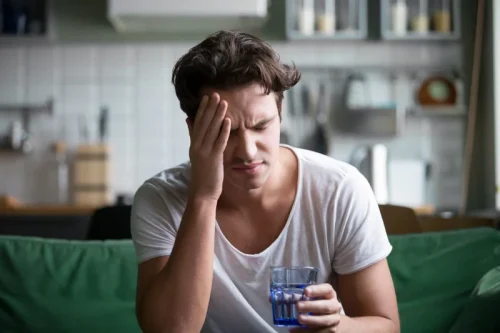
For the specific treatment of insomnia, behavioral therapies are the preferred treatment (rather than medications), as they have been shown to be effective and they won’t interfere with sobriety. People in recovery are often more likely to have problems with sleep onset than with sleep maintenance, which is why some might conclude that they can’t sleep sober. Plus, she says, if a person has insomnia, cutting out alcohol is unlikely to cure insomnia in the long term. Answer three questions to understand if it’s a concern you should worry about. After training at the Baylor College of Medicine and Stanford University School of Medicine, Dr. Wu established the first sleep medicine program within a psychiatric system in the United States while at the Menninger Clinic in Houston. Chester Wu, MD, is double board-certified in psychiatry and sleep medicine.
Tips for sleeping after a night out
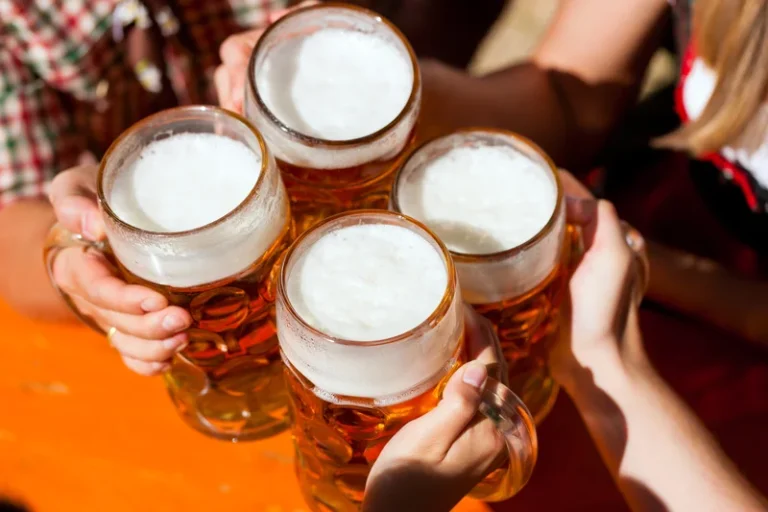
The most common type of sleep apnea is obstructive sleep apnea (OSA), and it occurs when the tissues in the mouth and throat relax and block the airway during sleep. In summary, alcohol misuse (heavy alcohol use and AUD) appears to be linked in a bi-directional fashion to sleep-related problems such as insomnia and circadian rhythm abnormalities. Furthermore, an evening chronotype and greater shifts in weekday-weekend sleep-wake schedules have been linked to alterations in the brain sensitivity to reward and possibly a change towards greater substance use behavior. The recommended treatment for insomnia disorder in the community, as well as those with AUD, is CBT-I.
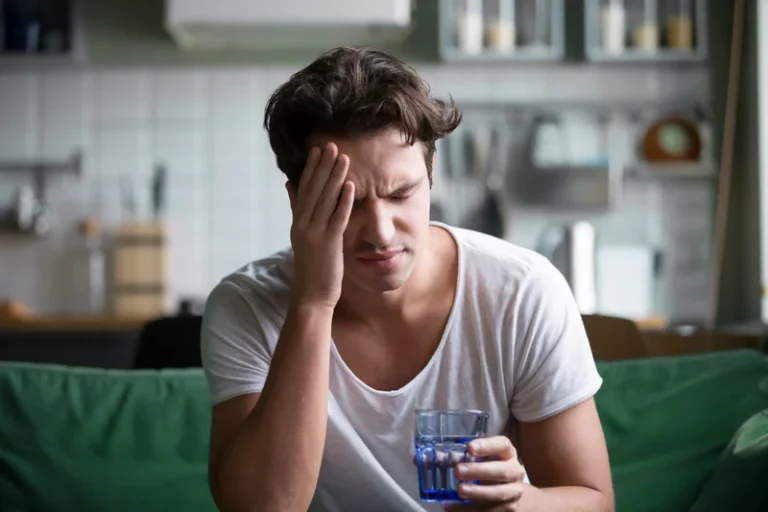
Alcohol is one of the most commonly used psychoactive substances in the community. Alcohol also increases breathing-related sleep events such as snoring and oxygen desaturation, especially in those with pre-existing problems. Emerging data demonstrate that insomnia may co-exist with SSD and circadian abnormalities.
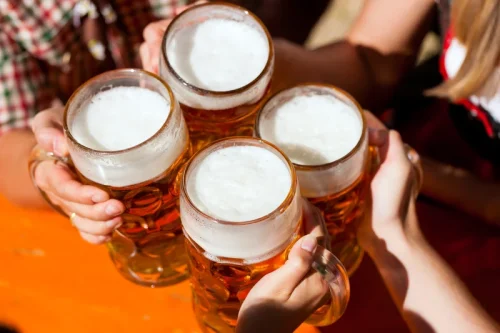
- While this demonstrates a correlation, it does not necessarily prove that alcohol itself causes OSA.
- The circadian rhythm also plays an important role in kidney function.
- We publish material that is researched, cited, edited and reviewed by licensed medical professionals.
- Although experts can’t be certain that alcohol directly causes insomnia, numerous studies have found a link between this sleep disorder and alcohol consumption.
He cares for https://ecosoberhouse.com/ patients through his private practice in Houston, where he provides evaluations, medication management, and therapy for psychiatric and sleep medicine conditions. Here’s a list of the best and worst beverages for your sleep — and the ones the sleep medicine jury is still out on. If you’re seeking help for yourself or a loved one, our expert team is here to guide you every step of the way. Peters is a board-certified neurologist and sleep medicine specialist and is a fellow of the American Academy of Sleep Medicine. CBTi, as offered by Sleepstation, could help if you’re experiencing alcohol-induced insomnia. These impairments could mean the danger signs related to substance use — and excess alcohol consumption — are missed.
Everyday Health follows strict sourcing guidelines to ensure the accuracy of its content, outlined in our editorial policy. We use only trustworthy sources, including peer-reviewed studies, board-certified medical experts, patients with lived experience, and information from top institutions. Hunnes says magnesium-infusion drinks may help with sleep by helping to regulate melatonin (a sleep-inducing hormone) and lower blood pressure. She mentions, however, the amount of magnesium does alcohol help you sleep in these drinks (like Calm) may not be sufficient enough to really make a difference. “You might be better off getting your magnesium from foods, but since there won’t be caffeine in Calm, there’s no reason to avoid it either,” she says.
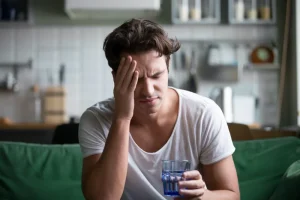
Office Hours
REM sleep behavior disorder, also known as rapid eye movement sleep behavior disorder (RBD) is a condition in which individuals experience realistic, often frightening dreams during the REM sleep stage. This may result in the person verbally or physically acting out their dreams, which may cause abnormal behaviors such as kicking, flailing, jumping or yelling during sleep. If left untreated, chronic sleep apnea can drastically impact your quality of life and lead to serious health concerns, such as weight gain and obesity, hypertension, stroke, memory impairment and heart failure. Remaining mindful of your temperature, diet habits and hydration may help. New tech like the Oura Ring may also help you better understand your cycle and temperature changes.
- Plus, she says, if a person has insomnia, cutting out alcohol is unlikely to cure insomnia in the long term.
- During a normal night of sleep, we cycle through periods of light sleep, deep sleep, and rapid eye movement (REM) sleep.
- It has zero calories and prevents dehydration, a condition that can cause foggy thinking, make you moody, and increase the risk of constipation and kidney stones.
Alcohol abstinence and sleep disruptions
Identify when you will most want a drink, and think about what you could do instead. Swapping in a non-alcoholic drink that you reserve for happy hour can often stand-in effectively for alcohol. Reading a book, taking a bath, connecting with a loved one, or even just going to bed early are all proven anxiety relievers. When a person has one or more of these symptoms, a doctor can review their specific situation and determine whether to recommend sleep apnea testing, which is required to diagnose the condition.